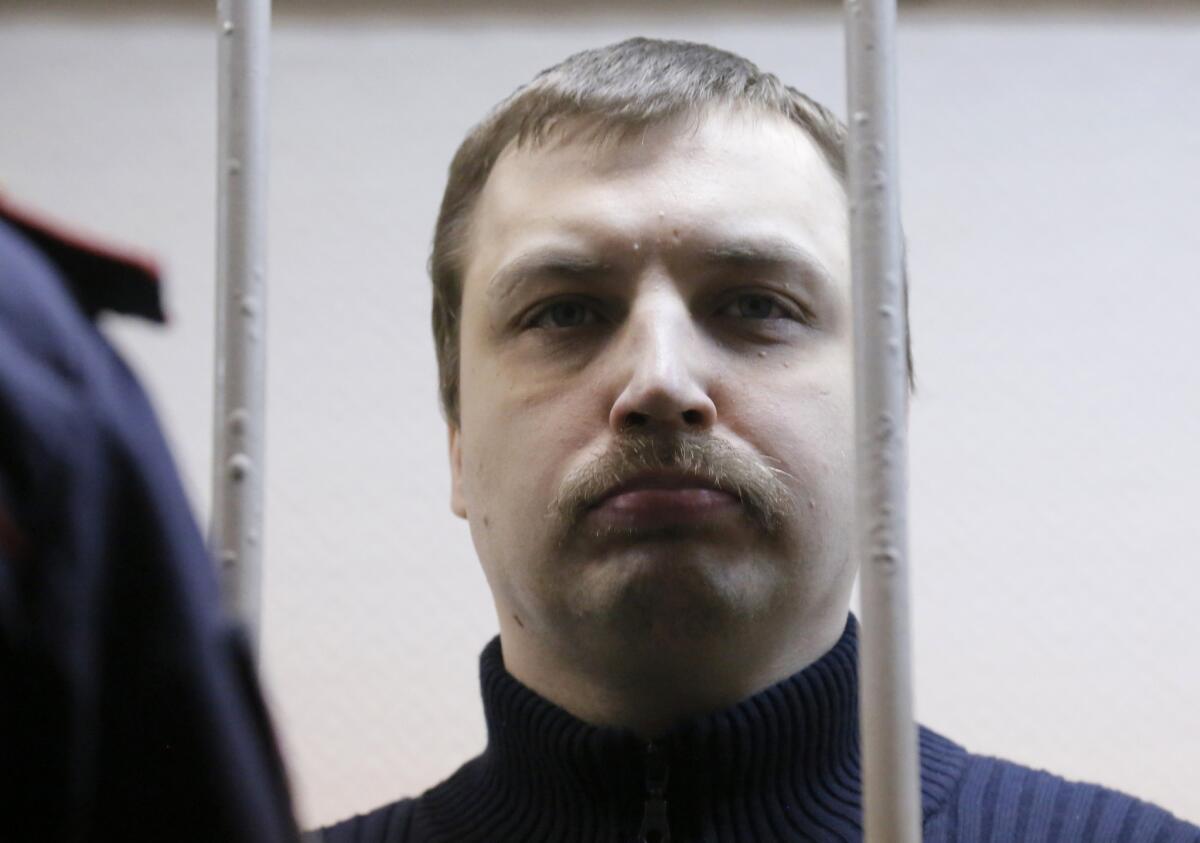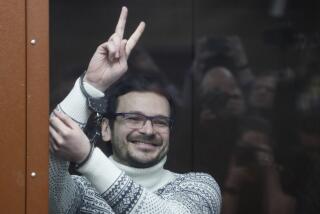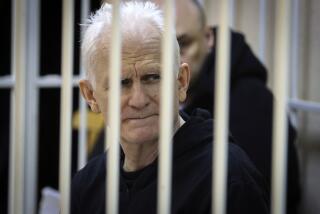Russian activist sent to mental institution, echoing Soviet era

MOSCOW -- For the first time since the collapse of the Soviet Union, a Russian court on Tuesday ordered an opposition activist to be sent to a mental institution for compulsory treatment.
Mikhail Kosenko, 38, who spent more than a year in preliminary detention on charges of taking part in a violent demonstration, was ordered by the Zamoskvoretsky district court of Moscow to undergo mental treatment at a prison-like mental institution for an undefined period.
Kosenko, one of a group of 28 opposition activists facing similar charges, was arrested shortly after an opposition rally near the Kremlin on May 6, 2012, the day before Vladimir Putin was inaugurated for his third term as president.
Thousands of demonstrators protested what they believed was electoral fraud in the presidential vote. The rally ended with clashes between demonstrators and police, and more than 400 people were detained.
The Kremlin accused its political opposition of organizing and inciting the violence. The opposition blamed the Kremlin and called the charges against its activists false and politically motivated.
Kosenko’s trial was the third to be held against activists arrested at the rally. In the previous trials, held earlier this year, two activists pleaded guilty and received sentences of 4 1/2 years and 2 1/2 years in prison. The charges carried a maximum penalty of 10 years.
Kosenko, who acknowledged suffering from a minor mental illness, was sent to Moscow’s Serbsky mental clinic, where he was diagnosed with paranoid schizophrenia and found to be a danger to himself and others. The diagnosis was immediately contested by a group of independent psychiatrists.
In his last courtroom remarks Oct. 2, Kosenko asked the judge to consider him sane.
Kosenko was in custody when his mother died Sept. 5, but Judge Lyudmila Moskalenko refused to allow him to attend the funeral, arguing that he “could again indulge in criminal activities or flee the trial.”
On Tuesday, Moskalenko found Kosenko guilty of taking part in mass disorders and attacking police, and ordered “compulsory treatment in a psychiatric asylum of a closed type.”
Rights activists said the trial and sentencing were reminiscent of the Soviet era, when dissidents were sent to prison-like mental institutions where conditions could be harsher than in the Soviet gulag.
“This is a monstrous ruling which sends Russia back in time to the dark period when a political protest was considered a mental disease,” Svetlana Gannushkina, a board member of Memorial, a Moscow-based rights group, said in an interview. “This ruling sends a message to the world that from now on the Kremlin critics could be treated for their obvious mental deviations.”
Gleb Pavlovsky, a former Kremlin adviser, argued that the Putin administration wanted to soften the sentencing of Kosenko by sending him to a mental institution instead of prison.
“Of course, it is a political trial and this verdict doesn’t make sense in terms of law,” Pavlovsky, head of the Foundation for Effective Politics, a Moscow-based think tank, said in an interview. “But at this stage we should see this verdict as a softer punishment, given Kosenko’s mental condition.”
He said it was premature to interpret it as “symbolizing a campaign similar to the punitive psychiatry used against Soviet dissidents.”
Lyudmila Alexeyeva, a veteran Russian rights activist and prominent Soviet dissident who attended the court session Tuesday, cried after the verdict was announced.
“Butchers! Butchers!” she exclaimed.
About 100 supporters of Kosenko gathered in front of the courthouse holding his photographs. They met the news of the verdict grimly, shouting “Shame!” Some were arrested by riot police.
There are still 25 protesters charged with taking part in the May 6, 2012, demonstration who are expected to be tried later in the year.
Kosenko will remain in custody pending appeal, his lawyers said.
ALSO:
Two dead in latest attack on Pakistani polio workers
In welcome change, Greece projects growth in economy in 2014
Target of U.S. raid in Somalia said to have planned string of attacks
More to Read
Sign up for Essential California
The most important California stories and recommendations in your inbox every morning.
You may occasionally receive promotional content from the Los Angeles Times.










